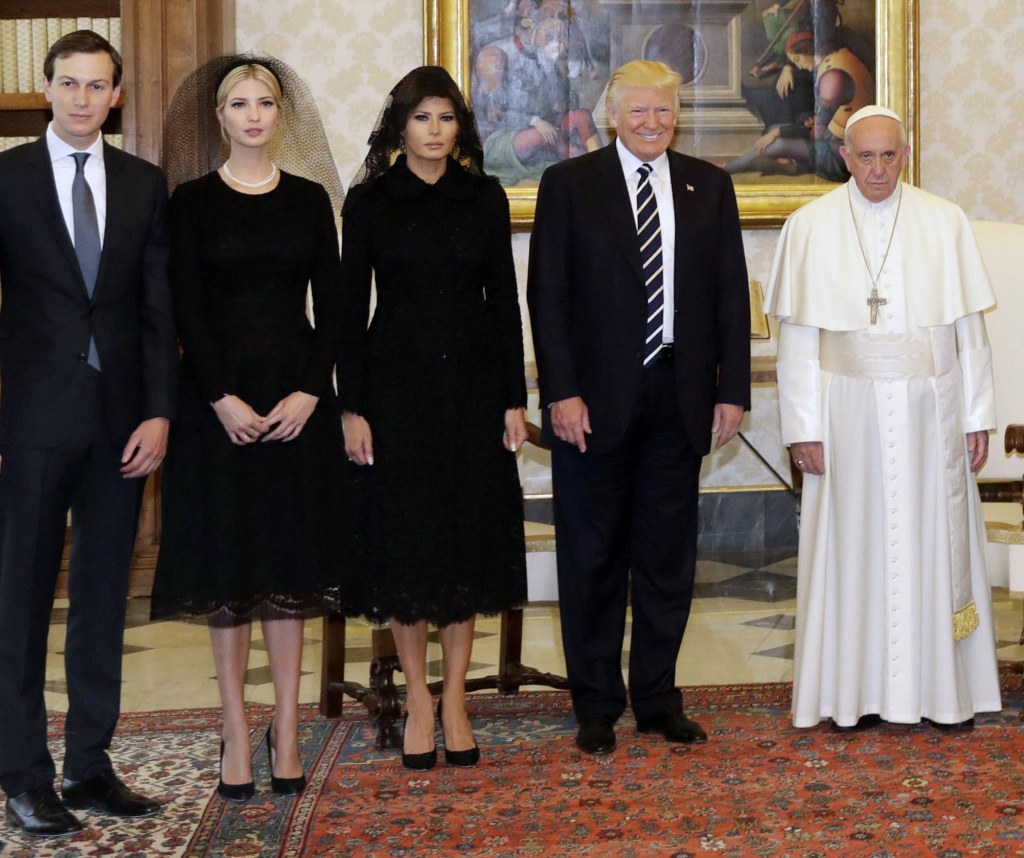Link
Nobody knows yet whether the president's son-in-law broke any laws. But "traitor" is more than just a legal term.

It’s time to talk about treason.
We now know, according to U.S. officials briefed on intelligence reports cited by the Washington Post, that in early December 2016 Jared Kushner and Russian Ambassador Sergey Kislyak “discussed the possibility of setting up a secret and secure communications channel between Trump’s transition team and the Kremlin, using Russian diplomatic facilities, in an apparent move to shield their pre-inauguration discussions from monitoring.”
At any time in the Cold War, what Kushner did would certainly have attracted the stigma of treachery. Should the same standard apply today?
Let’s consider Kushner’s best defense. Backchannels are an accepted part of diplomatic relations. A relationship may be too controversial for public consumption, and it is useful to have fora where diplomats and those entrusted with the leadership of states can speak frankly, without the glare of the media.
But this appears to have been no ordinary proposal for a backchannel. First and foremost, the intent was to avoid monitoring by the United States’ own intelligence agencies. And second, Trump’s team weren’t in government yet (unless the intent was for the backchannel to continue, or to start, after the inauguration, and thus provide a means to avoid U.S. intelligence monitoring while in office, which would be even more dubious).
The charitable interpretation here is that the Trump transition team did not want the Obama administration to know what they were discussing with Moscow. But this is unpersuasive as a defense, because if those conversations were within the realm of legality, what difference would it have made if the Obama administration knew about them? One might retort that it was important that the outreach to the Russians be kept out of the public domain, and that the Obama administration could have frustrated that by leaking to the press. But this argument is inane, given how publicly Trump advertised his desire for rapprochement with Russia during the campaign.
A final argument might be that Trump’s team was aware that it is illegal for private citizens to conduct diplomacy with a foreign government, so they needed a secret backchannel. Of course, being illegal, the Trump team would never make that argument. They might say, perhaps not unreasonably, that they were not conducting diplomacy, but merely talking to the Russians as an opposition party might do (call it the Marine le Pen argument). But you can’t have it both ways: either the enterprise was legal, in which case there would have been no need to hide it from U.S. intelligence, or it was not.
Let’s be clear. There would be nothing inherently illegitimate with the Trump transition team pursuing better relations between the United States and Russia. Indeed, it was a major part of the campaign platform Trump used to win the election. Foreign policy debate between Russia doves and hawks has been going back and forth since the deterioration of post-Cold War relations following the West’s intervention in Kosovo 1999, and those who want the West to have warmer relations with Russia have many reasonable arguments.
But it’s the very legitimacy of wanting better relations with Russia, given Trump’s democratic mandate to pursue such a course, that makes Kushner’s desire to hide the Trump transition team’s connections with the Kremlin from U.S. intelligence so dubious, especially if he did intend for the backchannel to continue, or to start, after the inauguration. That is the kernel of the illegitimacy here: not the effort to improve relations through a backchannel, but the extraordinary measures to keep it secret from one’s own side.
In the Cold War, Kushner’s actions would have attracted the stigma of treachery because Russia was an enemy of the United States. But his actions would not have gotten him indicted because there was no ongoing open war in accordance with the legal definition of treason (18 U.S. code § 2381): “Whoever, owing allegiance to the United States, levies war against them or adheres to their enemies, giving them aid and comfort within the United States or elsewhere, is guilty of treason”.
Similarly today, what we are talking about is not the legal offense of treason but the stigma of treachery — the broader social meaning of treason.
To understand this broader social meaning it helps to think about the history of the concept. In the Roman Republic, there were two treasonable offenses. One was called perduellio, which basically aligns with our current definition of treason of aiding an enemy in war. The other was called the crimen maiestas populi Romani immunutae, known commonly as maiestas, which was the offense of diminishing the majesty of the Roman people. It was only later, after the Republic collapsed and the emperors took over, that maiestas became the offense against the person of the emperor, given how in this kind of monarchy, there was little difference between the sovereign identity of the state and its ruler. (This is the origin of the offense of “lèse majesté” against monarchs still on the statute books in some states today).
If Kushner’s actions should come to attract the stigma of treachery, it would be in the old Roman Republican sense of maiestas, when public values and their expression in state institutions still meant something. Thus, in the Roman Republic, maiestas was about punishing individuals for hijacking their state positions for their personal gain. It could be used, for example, to prosecute official maladministration, like corruption by provincial officials or military officers. An apt modern equivalent would be soliciting personal investments by selling political access or expedited visas to rich Chinese people, which Kushner’s family business has already independently been accused of.
We’ll have to wait for the facts to see what Kushner may have been trying to hide from U.S. intelligence. But my hunch is that far from the “Manchurian Candidate” theories, this will turn out to be a sorry case of operating in the grey areas of the law to enrich oneself whilst in office. Not as bad as aiding the enemy, but still rancid. It is exactly what treachery as maiestas meant in Republican Rome: An offense against the dignity of the state understood as a community bound by its public values.
In Rome, the punishment for maiestas was normally exile. Kushner’s fate is still to be determined. But the public response to it will tell us much about whether the American people, under their new monarch, still have the dignity to protect their ancient majesty.












 Demonstrators protest outside QEII Centre in London in July 2016 as they wait to hear the outcome of the Chilcot Inquiry (AFP)
Demonstrators protest outside QEII Centre in London in July 2016 as they wait to hear the outcome of the Chilcot Inquiry (AFP) US President Donald Trump tours the Global Center for Combatting Extremist Ideology in Riyadh on 21 May 2017 (Reuters)
US President Donald Trump tours the Global Center for Combatting Extremist Ideology in Riyadh on 21 May 2017 (Reuters)



